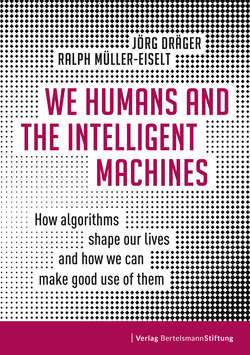Читать книгу We Humans and the Intelligent Machines - Jörg Dräger - Страница 25
На сайте Литреса книга снята с продажи.
Normative blindness: Algorithms also pursue wrong objectives
ОглавлениеBetter drunk than poor.9 That, apparently, is how car insurance companies feel about their customers in some parts of the US, where nothing drives up insurance rates like not being creditworthy. In Kansas, for example, customers with low credit ratings pay up to $1,300 per year more than those with excellent ratings. If, on the other hand, the police catch someone driving drunk, his insurance rate is increased by only $400.
A similar example from the state of New York: An accident where the driver is at fault increases her premium by $430, drunk driving by $1,170, but a low credit rating sends it skyrocketing by $1,760. Driving behavior has less influence on the insurance rate than creditworthiness. In other words, anyone who is in financial difficulties pays significantly more than a well-to-do road hog.
This practice was uncovered by the non-profit Consumer Reports. The consumer-protection organization evaluated and compared more than two billion policies from 700 insurance companies across the US, showing that the algorithms most insurers use to calculate their rates also forecast the creditworthiness of each customer. To do so, the computer programs use the motorists’ financial data, with which banks calculate the probability of loan defaults.
However, the decisive difference between the two sectors is that such an algorithmic forecast would be appropriate for a bank because there is a plausible correlation between creditworthiness and the probability that a loan will be repaid. For car insurers, however, the financial strength of their customers should be an irrelevant criterion. It does not allow any conclusions to be drawn about driving behavior or the probability of an accident, even though the insurance rate should depend solely on this. Car insurance is compulsory and everyone, regardless of social status, should have equal access to it – and the premiums should provide an incentive to behave in a compliant and considerate manner on the road. This would benefit all drivers and thus society as a whole.
The insurance practice denounced by Consumer Reports does not completely ignore this incentive; misconduct while driving continues to be sanctioned. However, this is undermined if accident-free driving is worth less to the insurer than the customer’s account balance. Those who suffer from that are often poorer people who are dependent on their car. Thus, those who are already disadvantaged by low income and low creditworthiness are burdened with even higher premiums.
Economically it may make sense for an insurance company to have solvent rather than law-abiding drivers as customers. That is not new. Now, however, algorithmic tools are available that can quickly and reliably assess customers’ creditworthiness and translate it into individual rates. Without question, the computer program in this example works: It fulfils its mission and acts on behalf of the car insurers. What the algorithmic system, due to its normative blindness, is unable to recognize on its own is that it works against the interests of a society that wants to enable individual mobility for all citizens and increase road safety. By using this software, insurance companies are placing their own economic interests above the benefits to society. It is an ethically questionable practice to which legislators in California, Hawaii and Massachusetts have since responded. These states prohibit car insurers from using credit forecasts to determine their premiums.
